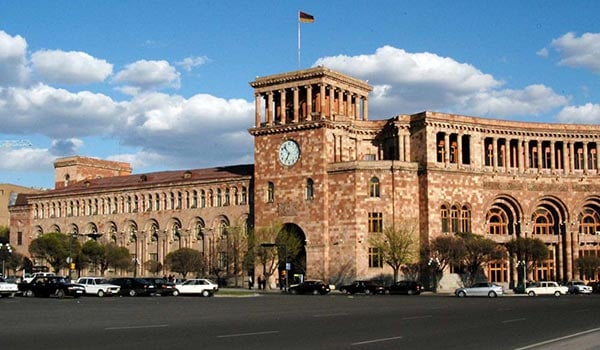In recent days, Armenia went through a serious constitutional crisis. The General Staff of the Armed Forces and other high-ranking military officials issued a statement opposing the removal of the First Deputy Chief of Staff and demanding the resignation of the Prime Minister and the Government.”In such difficult conditions for the country, such a decision is an anti-state and irresponsible step. The Prime Minister and the Government of the Republic of Armenia will no longer be able to make such decisions in these critical circumstances for the Armenian people,” declared the statement of the army leadership.
Prime Minister Nikol Pashinyan’s response was swift. He called the military leadership’s statement a “coup attempt” and called for the ouster of the Chief of General Staff Onik Gasparyan.
As expected, the opposition groups enthusiastically supported the position taken by the military, hoping that their goal of ousting Pashinyan was nearing its end. However, the Army’s interference in politics gave the Prime Minister an opportunity to show that he continues to enjoy the trust of a large segment of the society and he is still able to mobilize the citizens of Armenia on short notice. Resembling the days of the 2018 Velvet Revolution, Pashinyan, on two occasions, was able to pack the main square of the capital with thousands of his supporters, and sending a clear message to internal and external circles that it will not be so easy to remove him from his post.
Read also
What made the crisis even more complicated was the stand taken by President Armen Sarkissian who refused to sign the Prime Minister’s decree dismissing the Chief of General Staff. Pashinyan upheld his decision and sent the decree to the president for the second time. The President had the recourse to appeal the decision at the Constitutional Court, otherwise, the decree becomes enforceable by law, as stated in the constitution. The President made a wise decision, and he stayed short of sending the Prime Minister’s decision to the Constitutional Court, thus preventing a constitutional crisis that could have lasted a long time until the final ruling by the High Court.
As of writing this piece, Onik Gasparyan has not left his position yet and it’s not clear if he will comply with the decision to remove him, or if he will try to stay at his post by other means.
It should be plainly stated that the direct or indirect involvement of the armed forces in political processes is not only unconstitutional, but also a threat to the statehood and internal stability of Armenia. The country’s constitution clearly states that the army command will be subject to the decisions of the civilian leadership and it is not a question of agreeing or disagreeing with the Prime Minister’s decisions. High-ranking military officials had no right to make political statements or question their supreme commander’s determinations.
During his second rally held on March 1st, Pashinyan called for political dialogue to resolve the internal crisis and expressed his willingness to stand for snap elections. Now, the burden shifts on the parliamentary opposition to take the next step towards stabilization of the situation, putting the country back on track to overcome its most recent domestic crisis.
“MASSIS”




















































